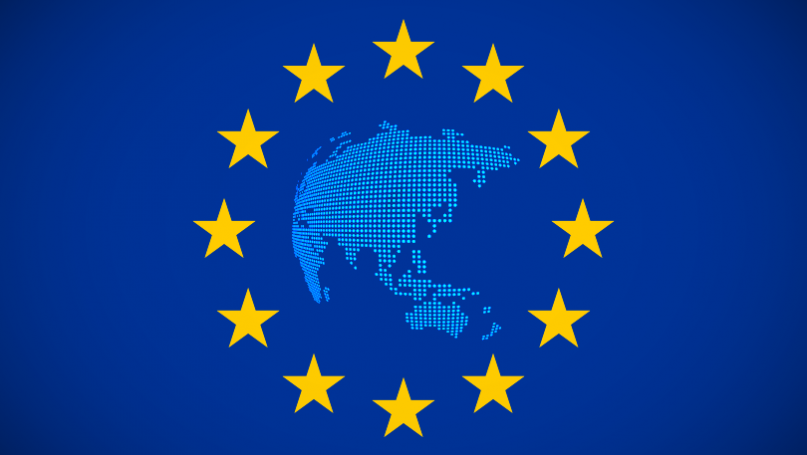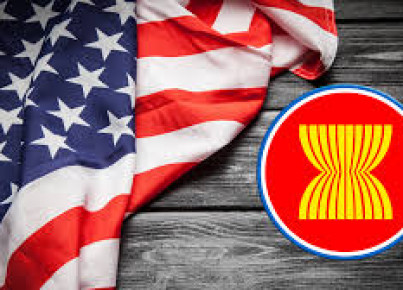The EU is looking with increasing attention to the Asia-Pacific. Recently also with an unprecedented focus on securitarian aspects, in addition to and not in place of the approach traditionally hinging on soft power and economic cooperation
The Indo-Pacific represents "the world's economic and strategic center of gravity." This is how Josep Borrell, High Representative of the European Union for Foreign Affairs and Security Policy and Vice-President of the Commission, defined the region in March 2021, underscoring the urgency for the European Union to equip itself with a strategic approach to that area of the world that is catalyzing the attention and efforts of key international players.
The macro-region stretching from the east coast of Africa to the island states of the Pacific and East Asia contributes two-thirds of the global growth rate and a 62 percent share of the world's GDP and is home to four of the EU's ten largest partners (China, Japan, South Korea, and India), as well as more than half of the world's population. At the same time, it represents the main theater of geopolitical competition between China and the United States. Aware of its strategic significance, a number of European countries, such as Germany, France and the Netherlands, have long since put in place autonomous initiatives and strategies to protect national interests in the region, in an attempt to mitigate the consequences of Sino-US rivalry and from frictions between regional powers, which reverberate on global supply chains, trade and free navigation on the seas.
But the pandemic crisis and escalating political tensions and territorial disputes in the region have made the need for more concerted efforts obvious. On April 19, 2021, the European Council announced the approval of conclusions on a strategy for cooperation in the Indo-Pacific, which aims to harmonize the different national orientations of member states into a common vision that can guide future long-term European engagement in the area. The 27 foreign ministers agreed on the goal of strengthening European engagement to "contribute to the stability, security, prosperity and sustainable development of the region," in line with common values of support for democracy, human rights, the rule of law and respect for international law.
As is typically the case, European engagement goes through the deepening of economic relations with countries in the area and the strengthening of the strategic trade position vis-à-vis the massive existing trading blocs in the area, a reflection of the agreements signed in recent years, the Regional Comprehensive Economic Partnership (RCEP) and the Comprehensive and Progressive Trans-Pacific Partnership Agreement (CPTPP). Goals include reaching free trade agreements with Australia, Indonesia and New Zealand and relaunching negotiations with India, building on the ambitious trade and investment agreements already signed with Vietnam, Japan, the Republic of Korea and Singapore.
The strategy for the Indo-Pacific also introduces a novel focus on security aspects, distancing itself from an approach traditionally centered on soft power and economic and human rights cooperation. The strengthened European engagement takes the form of a series of initiatives ranging from traditional defense and security, such as joint military exercises with regional partners, to the more innovative domains of cyber security, and comes in response to China's growing assertiveness in the region.
As part of the European Critical Maritime Route Indian Ocean (CRIMARIO II) project, the EU has decided to expand the geographic scope of its critical maritime route protection operations. The scope of the project, inaugurated in 2015 with a focus on a few particular East African countries and archipelagos and currently in its second phase, now extends to include all countries bordering the Indian Ocean and Southeast Asia, and European authorities are exploring the possibility of replicating the experience in the South Pacific. In addition, the areas of cooperation have been expanded: alongside information sharing and training and capacity-building initiatives, some additional components of communication between law enforcement and the judiciary at the national, international, and regional levels and compliance with international regulations have been envisaged, to be implemented exclusively in the South and Southeast Asian areas.
Coordinated actions of this kind come alongside the autonomous deployment of naval forces by member states (and one former member state, namely the United Kingdom), some of which temporally precede any integrated strategy at the European level and are due to the historical presence of some countries in the region. First and foremost, France, the only European country with a permanent military presence in the area, in the face of impressive strategic interests, starting with the presence of some overseas territories, including the island of Reunion in the Indian Ocean and the archipelagos of French Polynesia in the South Pacific. Also significant is the contribution of the Royal Navy, which from 2021 inaugurated a significant strengthening of its naval presence in the area with the deployment of the mammoth aircraft carrier HMS Queen Elizabeth (R08) and its Carrier Strike Group (CSG). The Netherlands and Germany also helped fortify the European military commitment in the area by sending HNLMS Evertsen and Bayern frigates, respectively.
The Asia Pacific plan aligns with the Global Gateway, Europe's model of global partnerships for sustainable "reliable connectivity." This broader strategy takes the form of "smart, clean and secure" infrastructure investments in partner countries, with a focus on the key sectors of digital, energy and transport, health and research education, for which the Union and member states plan to mobilize up to €300 billion.
Although not made explicit in the document, some observers say the project may reflect a European desire to untangle itself from Sino-US competition by offering partner countries an alternative (albeit not perfectly overlapping in terms of modalities and funds invested) to similar connectivity initiatives: the Chinese Belt and Road Initiative and the US-led Build Back Better World (B3W). However, the Union's approach to the region remains "geared toward cooperation, not seeking confrontation," as clarified by EU Foreign Affairs and Security Policy spokeswoman Nabila Massrali and repeatedly stressed by European authorities. In the new strategy for the Indo-Pacific, the willingness to maintain an open and inclusive attitude toward all regional actors who share concerns, interests and values with the Union is openly emphasized. The chairwoman of the European Commission herself, Ursula von der Leyen, commented on Twitter, "We want a peaceful and prosperous Indo-Pacific. It must be free, open, interconnected, prosperous, with a rules-based security architecture that serves all interests. We will continue to encourage Beijing to play its part in a peaceful and prosperous Indo-Pacific region."
It remains to be seen whether Europe will really be able to wade in between the two competing superpowers to pursue its own ambitious agenda, offering a real alternative to its regional partners, or whether its recent desire to increase its political, military and economic projection will only exacerbate the tense climate in the area.






